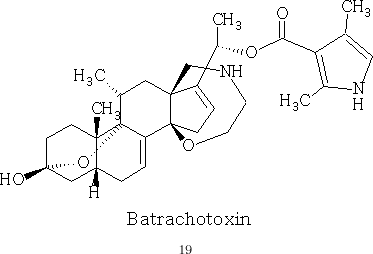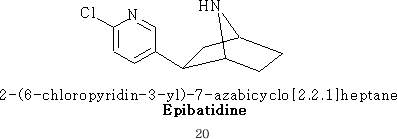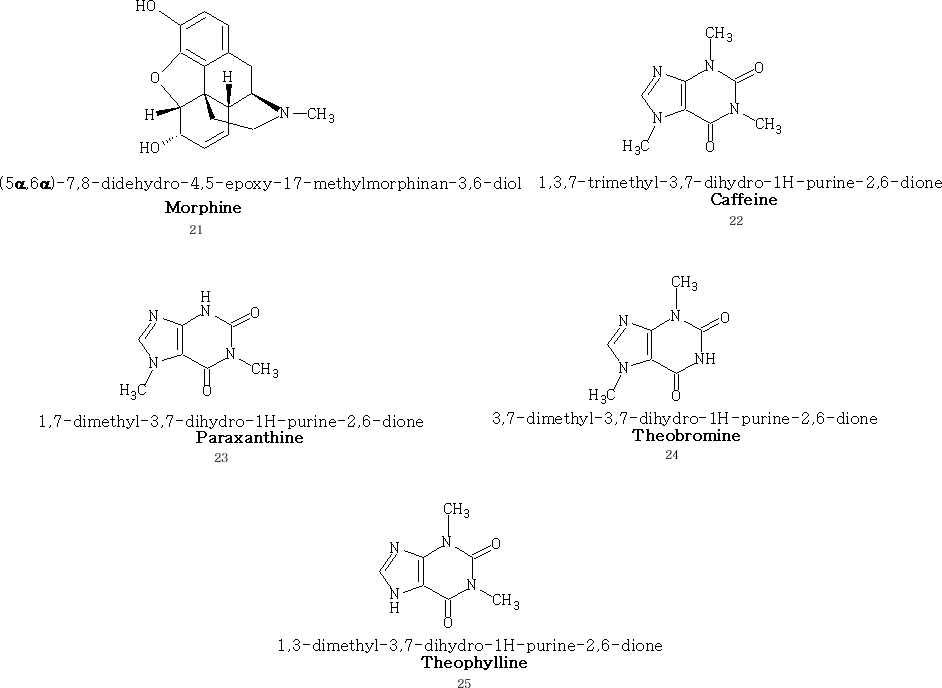While I am talking about interesting alkaloids , I found a particularly nasty alkaloid, that is also a toxin which is used for poisoning blowgun darts; it is used by the Noanamá Chocó and Emberá Chocó Indians of western Colombia for use in hunting. The substance is called Batrachotoxin {19}. It is one of the most potent poisons and there is no known antidote. The lethal dose is said to be between 1-2 µg/kg of body weight. It is fifteen times more potent than curare in its effects. This substance comes from a frog called the dart frog, a member of the family Dendrobatidae, the frog doesn't make the poison but it comes from insects that the frog eats.


Another frog of the same family Epipedobates tricolour produces a painkiller 200-time as potent as morphine, called epibatidine {20}.
Epibatidine seems to have little or no side-effects as it is not an opioid and is not related to morphine. {21} The chance of epibatidine ever being used as a medicinal agent is quite low because of its high toxicity. However, new analogues of epibatidine have been and are still being synthesized.

One of the most common alkaloids which most of us drink every day is caffeine {22}. Many foods or drinks contain this stimulant. In the plant it acts as a natural pesticide and will kill many insects that feed on the plant. In humans the caffeine is metabolised into three compounds, paraxanthine {23} theobromine {24} and theophylline {25}. Each substance affects the body in a different way. E.g. Paraxanthine promotes lipolysis - breakdown of fat stored in the fat cells. Theobromine - dilates blood vessels and is a diuretic. Theophylline – relaxes smooth muscle. Each of these substances is used in its own right as a medication for treatment of specific diseases.
Caffeine in moderate amounts (200–300 mg per day) is a beneficial compound as it stimulates and makes one mentally alert, however, taken in large amounts it can cause many unwanted side effects - nervousness, irritability, anxiety, muscle twitching, insomnia, headaches, hyperventilation and heart palpitations. Caffeine may also cause the body to lose calcium, and that can lead to bone loss over time. Drinking caffeine-containing soft drinks and coffee instead of milk can have an even greater impact on bone density and the risk of developing osteoporosis.

